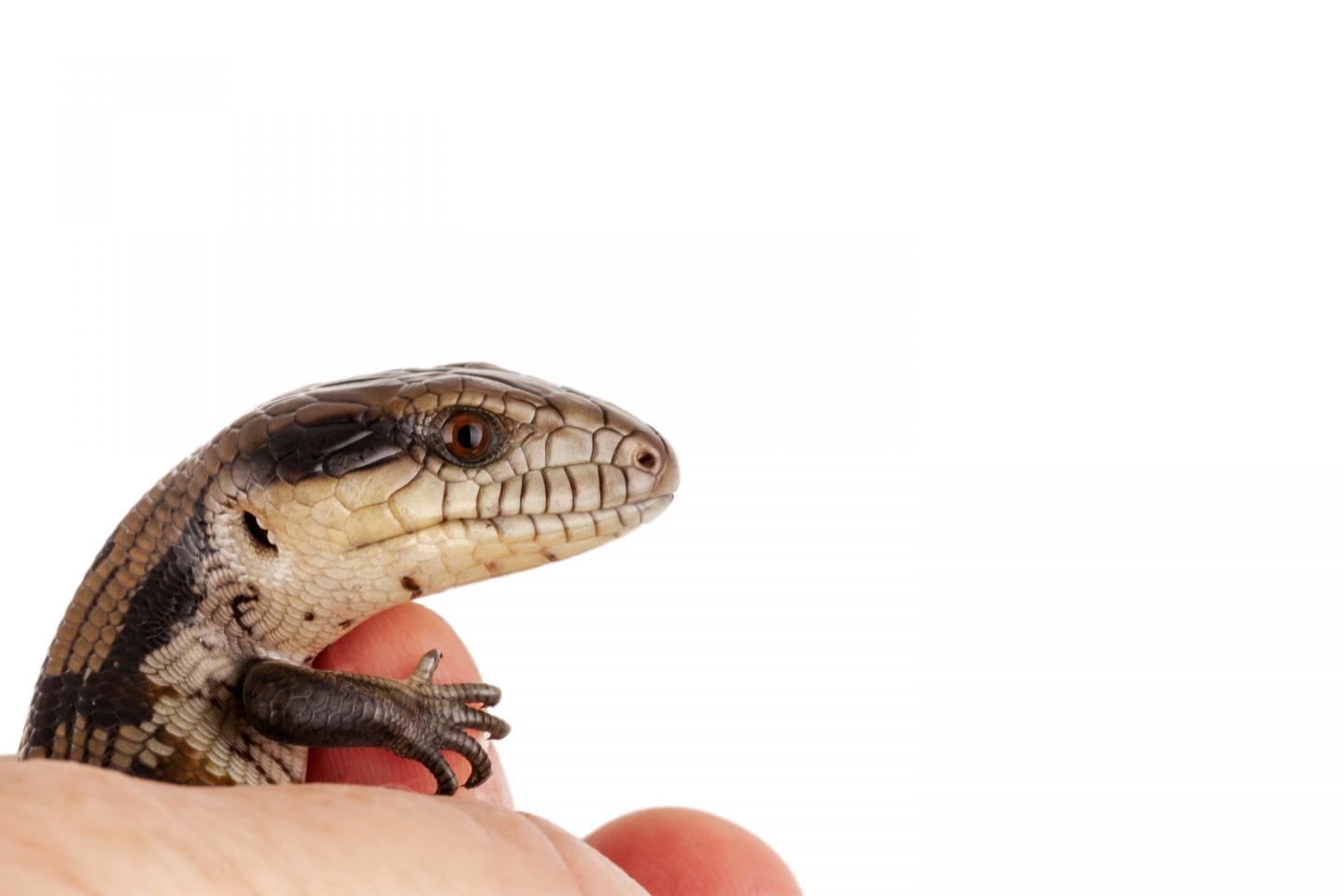Australian research finds little lizards learn very quickly

Credit: Carla Edwards
Young Australian eastern blue-tongue lizards (Tiliqua scincoides) are every bit as clever as adults, researchers have found.
Life is hard for baby blue-tongues. As soon as they are born, they are on their own, with neither parental support nor protection. Adults of the species can grow to 600 millimetres long and enjoy the benefits of thick scales and a powerful bite, but the young are much smaller and thus more vulnerable to predation.
And that means they have to box clever if they are to survive.
To establish just how smart baby blueys are, researchers Birgit Szabo and Martin Whiting from Australia’s Macquarie University, together with colleagues from the Australian National University, the University of New South Wales, and St Andrews University in Scotland, put wild-caught adult and juvenile lizards through a series of tasks designed to test their cognitive abilities.
A dozen adults, all over two years old, took part in the tests, along with 16 captive-born juveniles, all aged between 23 and 56 days.
“In all the tests, the young lizards performed every bit as well as the adults,” said Szabo. “This indicates that the young learn at adult levels from a very early age.”
###
The study, published in the journal Animal Behaviour, is the first to directly compare adult and juvenile flexible learning in a reptile species.
The paper can be found at: https:/
Media Contact
Andrew Masterson
[email protected]
Related Journal Article
http://dx.




